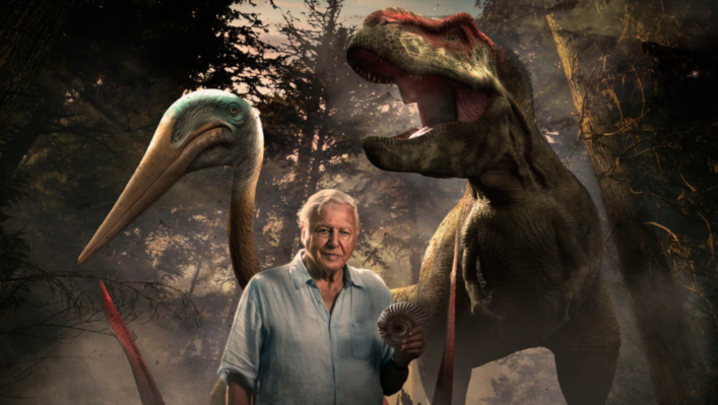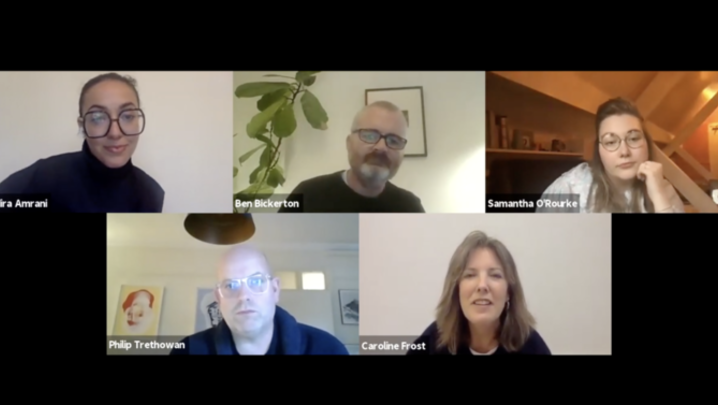TV soap operas have an important role to play in communicating environmental messages.
That was one of the conclusions of an RTS Futures session, 'Can TV Save The Planet?', that discussed how it not only people like David Attenborough and Chris Packham that can alert audiences to the impact of climate change and other environmental challenges.
Tom McDonald, Director of BBC Studios Factual, whose commissions have included Blue Planet II and Drowning In Plastic, said that as shows like Coronation Street and EastEnders had influenced attitudes to sexuality, they could similarly heighten awareness of ways to live in more sustainable ways.
“Soaps take things that might be considered minority interest and put them into the heart of the mainstream,” he said.
“My mum and my granny are more likely to be affected by something they see in EastEnders than in a David Attenborough film.”
The café in EastEnders no longer sold bacon sandwiches. Top Gear, meanwhile, had an opportunity to feature more electric cars – not only as worthy modes of transport but in an exciting and fun way.
“On the other hand, I don’t want to watch Bake Off and be told what the cake’s ingredients are and what they’re doing for the environment,” added McDonald.
He hopes that environmental messages become so common in TV programmes that they no longer stand-out.
Philip Holdgate, Senior Project Manager, ITV Studios, said that soaps not only reached a different audience to natural history and current affairs programmes, they were also watched by up to seven million viewers five nights a week.
Emmerdale had been at the forefront of embedding environmental themes by banning plastic straws from the bar at the Woolpack and featuring a corner shop selling locally grown organic produce that used an electric van for deliveries.
“You don’t have to ram it down people’s throats. It can be quite subtle,” he added. “Audiences can be shown that you can do things differently and it’s not that scary. Soaps are at the forefront of that. It’s a window into somebody else’s life. If you show that life being lived in a way that doesn’t damage the planet, it’s a powerful tool.”
Broadcaster Liz Bonnin, a presenter of Blue Planet Live, agreed that soaps were key to TV affecting real change in people’s behaviour, but urged broadcasters and platforms to continue to commission hard-hitting films like the recent Extinction: The Facts, presented by Attenborough, that don’t “sugar the pill.”
As for encouraging production teams to work in a more environmentally conscious way Aaron Matthews, Head of Industry Sustainability, BAFTA, said that big strides were being made.
The Albert certification scheme had been in place for around five years. He described it as a glorified check list. Fulfilling Albert criteria involved such things as ensuring that productions use electric generators, limit their travel by hiring crews locally and offsetting carbon when carbon footprints can’t be reduced.
“On scripted shows, people are now using zero-carbon generators,” Matthews explained. “It’s also important to ensure that supply chains are sustainable.”
Studios are encouraged to use renewable energy suppliers. “These are things that over time create change,” he said.
A recent Albert report, Screen: New Deal, aims to inspire scripted producers to move towards zero-carbon filming.
Holdgate said that at ITV there was a view that working in a more sustainable way would be more expensive. However, this attitude has begun to change.
“We’re asking people to be more efficient and to avoid waste,” he said. “When you’re not wasting electricity or costumes, you’re potentially saving money. People should think less about cost and more about value.”
ITV is discussing using low energy lighting on sets for Coronation Street and Emmerdale, daytime and news. This could save 90% of current energy use, a massive impact, indicated Holdgate. “It’s not a quick or cheap thing to do but it’s on our road map.”
He added: “On using low-energy tariffs we’ve made huge progress in a relatively short period. I’m interested to see if that leads to progress on on-site renewables and storage.”
Can TV Save The Planet? was an RTS Futures event held on December 3.










